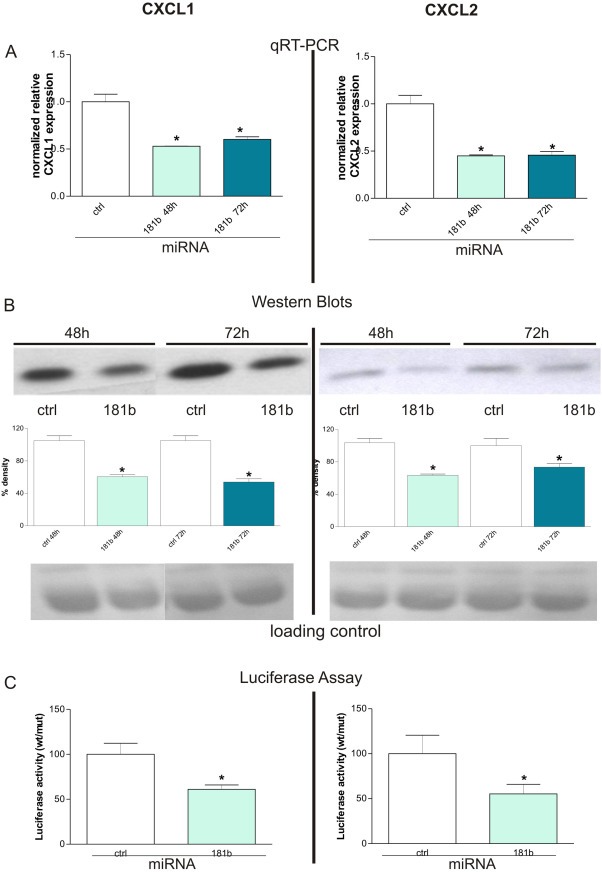Figure 3.

miR181b regulates CXCL1 expression through a direct binding to its 3′ UTR. A: Transient overexpression of miR181b in MDA‐MB‐231 breast cancer cells leads to a ∼50% down‐regulation of CXCL1 (left side) and CXCL2 (right side) transcripts as evidenced by qRT‐PCR (*P < 0.05, student's t‐test). Mean + SD from 3 independent experiments normalized to the respective controls are shown. B: On the corresponding protein level the same effect could be seen as indicated by Western Blot (upper panel) analysis 48 h and 72 h after transient introduction of miR181b into the tumor cells. Densitometric analysis of the bands (middle panel) reveals that CXCL1 (left side) and CXCL2 (right side) protein syntheses were statistically significantly (*P < 0.05, student's t‐test) impaired by about 50% 48 h after transfection. Ponceau staining was used as loading control to evaluate that equal amounts of proteins were applied (lower panel). Mean + SD from 3 independent experiments are shown. C: Luciferase assays demonstrated that regulation of CXCL1 and ‐2 occurs through direct binding of miR181b to their corresponding 3′UTRs. Co‐transfection of pGL3‐cont‐CXCL1 UTR‐wt or pGL3‐cont‐CXCL2 UTR‐wt together with miR‐181b, but not with a scrambled miR181b oligonucleotide, caused a decrease of the luciferase activity in He–La cells. Conversely, miR181b oligonucleotide did not inhibit luciferase activity of pGL3‐cont‐CXCL1 UTR‐mut or pGL3‐cont‐CXCL2 UTR‐mut. Mean + SD from 3 independent experiments are shown.
